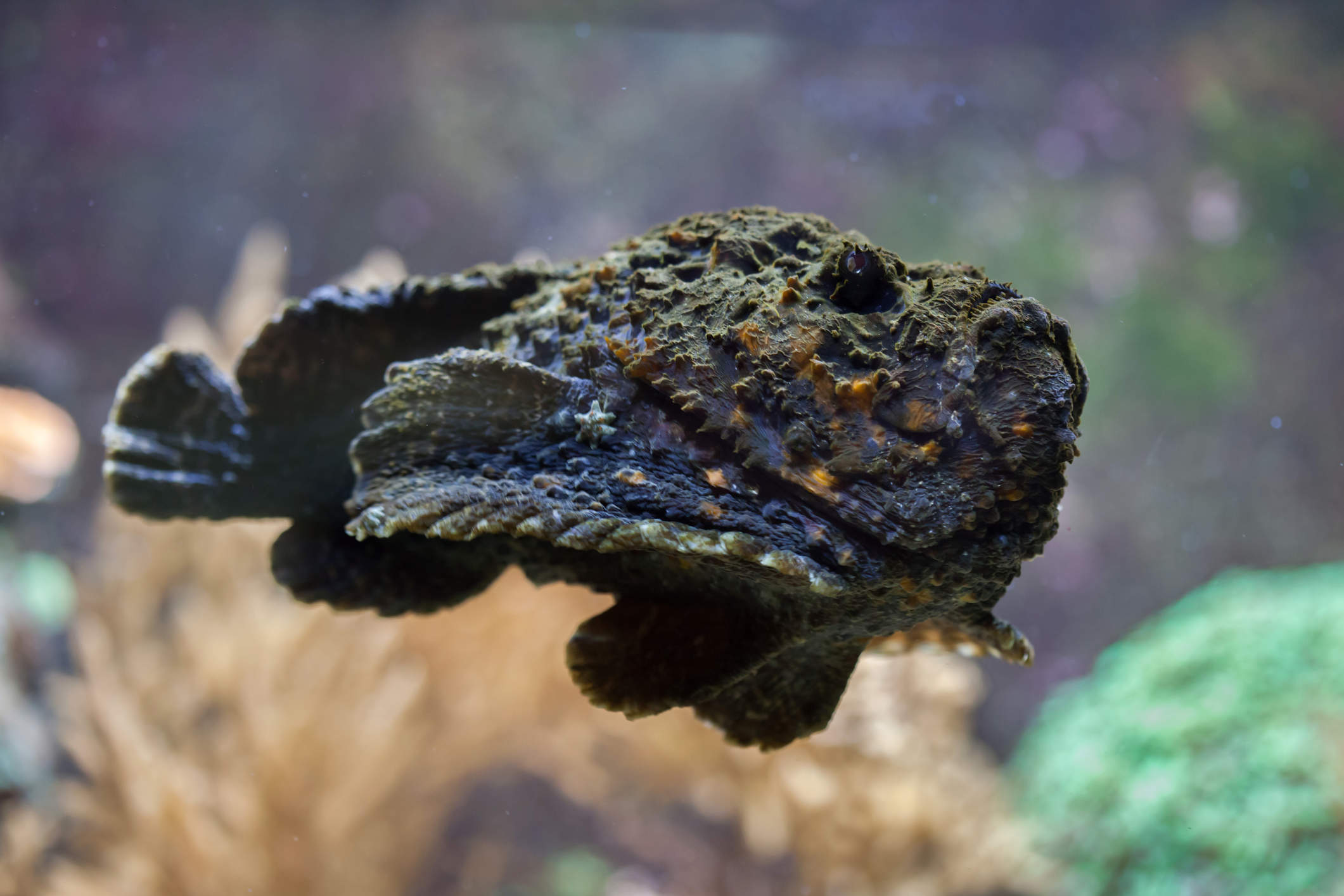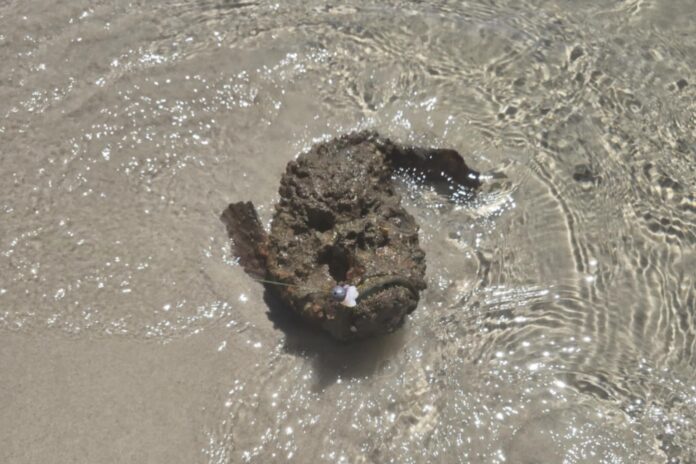A giant and extremely dangerous fish has been spotted at a popular swimming spot, prompting a reminder for people to be vigilant around waterways.
Known as the world’s most venomous fish, the massive stonefish caught the fisher by surprise when she cast a line in the Noosa River.
Missy Rose was fishing at Munna Beach, near the Noosa River Holiday Park, when she reeled in the creature.
Ms Rose took a video of her catch and posted it to social media to remind other river users to be careful, before safely unhooking and allowing the fish to return to the river.
She told Sunshine Coast News she hoped her post would help people stay “informed and cautious”.
“I uploaded the video as a friendly reminder to fellow river-goers,” she said.
“The presence of stonefish in the Noosa River is significant.
“While the river invites exploration and discovery, being aware ensures a safe and delightful experience for all.
“This stonefish was carefully unhooked and released back into the river, where it is a crucial part of the ecosystem.”
Ms Rose says she often sees small stonefish in the river, but this was the largest she had witnessed.

Stonefish can grow up to 50cm in size but are commonly 20cm to 30cm. Ms Rose estimated this fish to be at the top end of that scale.
“When they are breeding there is literally hundreds of smaller babies all around the sandbags … but I’ve never seen one this big,” she said.
Stonefish are found throughout shallow coastal waters of the northern half of Australia, including on the Sunshine Coast.
According to the Queensland Museum, the fish usually lies motionless, camouflaged and often partially buried among coral, rocky reef, rubble or aquatic plants.
They have 13 sharp dorsal fin spines that can discharge venom when disturbed, such as if they are stood on.
If stung the pain is immediate, excruciating and may last for many days, with muscular paralysis, breathing difficulties and shock.
In extreme cases it can cause heart failure and death, but there have been no recorded deaths in Australia.
A Sunshine Coast Health spokesperson said anyone stung by a stonefish should call for help immediately.
“Stonefish envenoming is very painful but is rarely life-threatening,” they said.
“In the event of a sting phone triple zero (000) and immediately soak the affected area in hot but not scalding water, ideally 45 degrees Celsius, to relieve the pain until you receive medical attention.
“Most stonefish-related incidents treated in our emergency departments are due to someone inadvertently standing on a stonefish, so to prevent stings, sturdy footwear or reef shoes should be worn while wading in rocky or weedy areas.”
Help us deliver more news by registering for our FREE daily news feed. All it requires is your email below.





